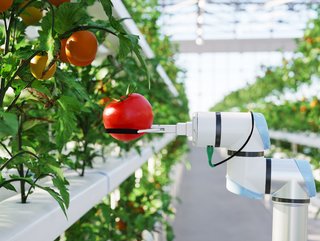
Automation within the food industry is nothing new, with AI taking many industries to the next level of digital transformation. However, more companies are increasingly weighing up benefits to agriculture robots (agribots) and if a surge in automation can help provide harvesting solutions.
Technology companies are now designing robots to partake in fruit picking. In particular, flying autonomous robots are powered by AI and computer algorithms are aiming to optimise the harvesting process.
With continued concerns about AI replacing human workforces, it is important to consider if this type of technology will truly benefit the food industry.
These types of robots are agile and can operate around the clock, providing cost-efficient solutions for farmers. With this in mind, Tevel’s software allows for real-time monitoring of the orchard’s harvesting status.
The data collected provides farmers with unique insights into specific characteristics and contents of each bin prior to its delivery to the packing house. It enables growers to eliminate uncertainties regarding market value, quality, and output, as well as improving efficiencies on site.
Farmers can also easily access information such as the quantity of fruit harvested, its weight, colour grading, ripeness, diameter, timestamp, geolocation of each fruit and other vital data.
With Agribots, sensors and 3D cameras can detect which fruit is ripe, as well as measuring sugar content and checking for diseases. The bots have a completely autonomous system, which includes decision-making, with some using electrostatic charges that mimic the movements of a bee to help with pollination.
Honeybees have also contributed significantly to AI research as their brains could help manufacture robots and autonomous vehicles to make decisions in a similar way. It also confirms the importance of bees to the food industry and how pollination significantly contributes to food supply chains.
It is interesting to consider how these essential aspects of food sourcing and production could be mimicked by robots and AI tools. However, more research and practice is definitely required before these answers will become clear.
AI is already contributing to the food sector, with Siemens in particular helping the indoor farming industry expand its business to meet global food supply demands, with AI/ML being called upon to keep plants healthy.
There are 500 agritech companies listed in Israel alone, contributing significantly to global food innovation. Tevel technology in particular is used on farms in the US, Italy and Israel.
Technology companies have designed fruit-picking drones and tree-pollinating 'paddles' to make farms more efficient at a time of worker shortages and climate change. In Chile for example, flying robots use AI/ML to detect ripe apples before pulling the fruit from the tree.
However, these types of solutions are currently not perfected. It is still difficult for robots to manoeuvre around tree branches for example, which may impact the amount of fruit or crop picked. In addition, it is difficult for the robots to know if a fruit is infested with worms.
These types of issues need addressing if farms want to continue using agribots frequently. Yet, it appears as though at the moment that manual labour and the human workforce is still irreplaceable within the food industry.